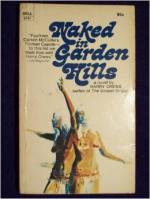|
This section contains 152 words (approx. 1 page at 300 words per page) |

|
Quite obviously, Naked in Garden Hills reflects the varied and longstanding literary fascination with man's origins, nature, and ends. Crews, looking at these issues through the dust of contemporary industrialization, sees only humans surviving on their own resources in a world of shifting values.
The realistic social and economic detail in which Crews pictures that world recalls the dystopian social views of such Industrial Age writers as Emile Zola, Upton Sinclair, Theodore Dreiser, and Frank Norris. The specifically southern characters and settings echo the fictional worlds of Erskine Caldwell and Flannery O'Connor, and the use of religious mythology strengthens the parallel to O'Connor. The Hollywood values of Dolly's new age and the grotesque entertainment frenzy with which the novel ends suggest Nathanael West's metaphorical vision of contemporary decadence. In the particular combination of these literary echoes, however, Naked in Garden Hills seems the sole creation of...
|
This section contains 152 words (approx. 1 page at 300 words per page) |

|




